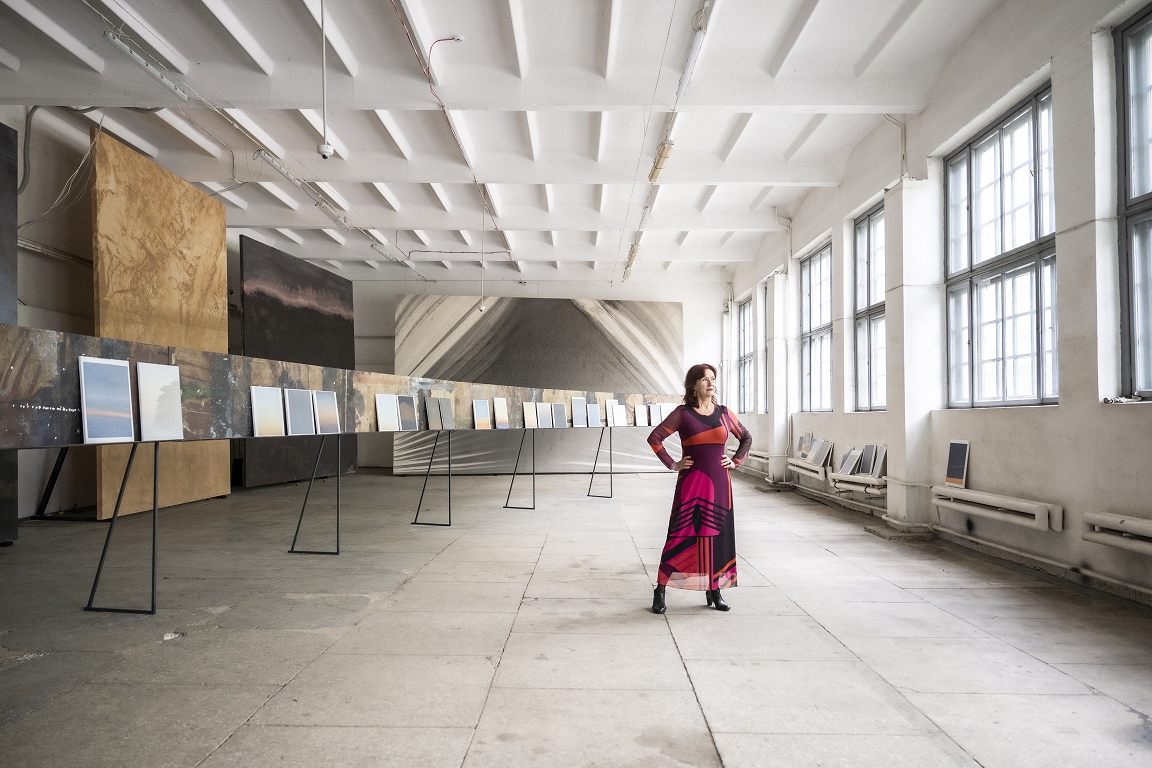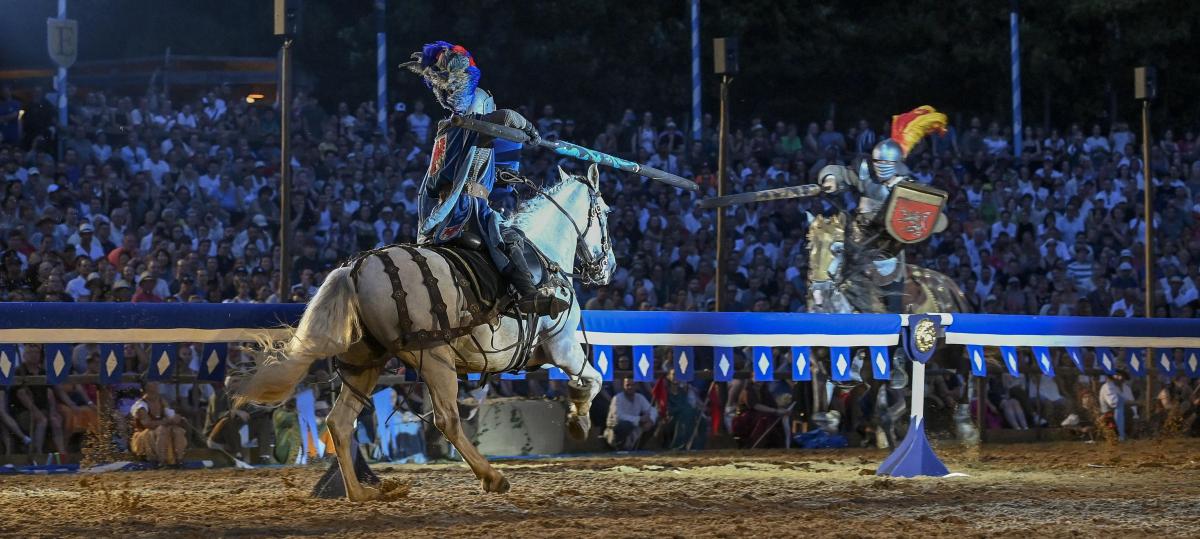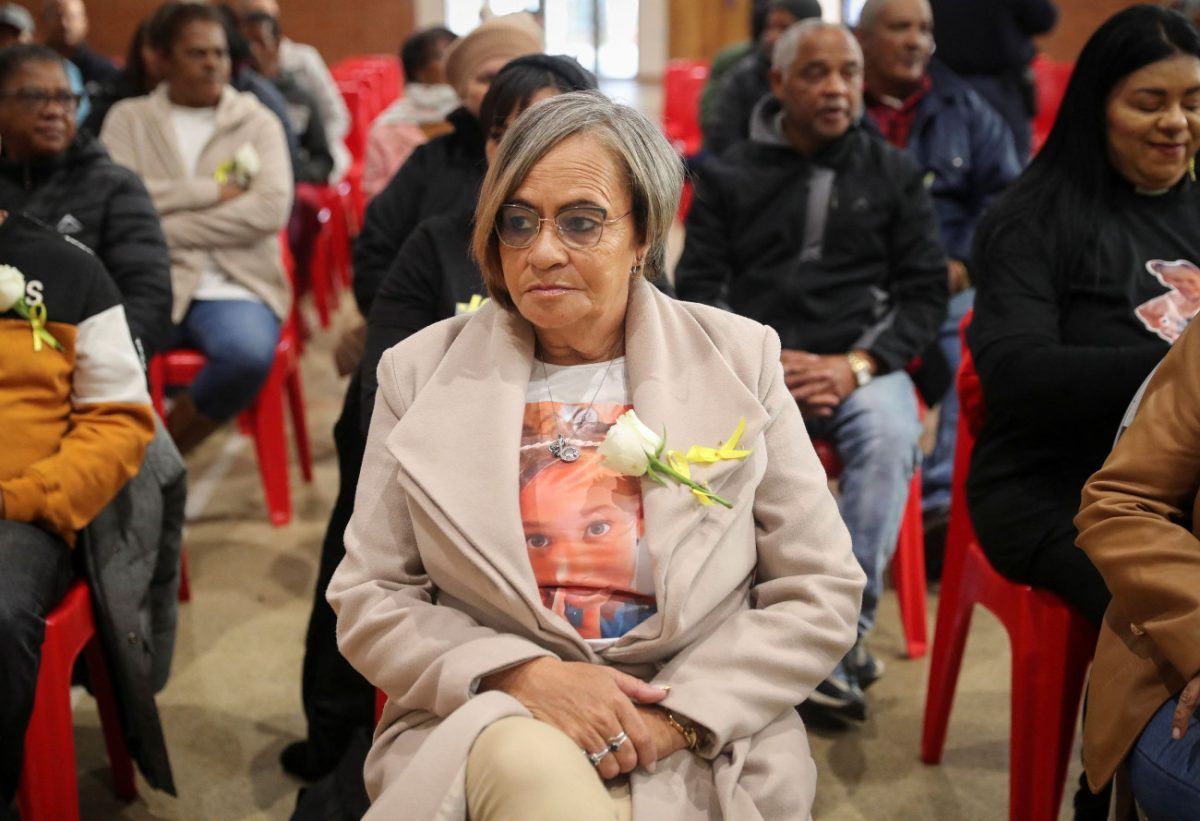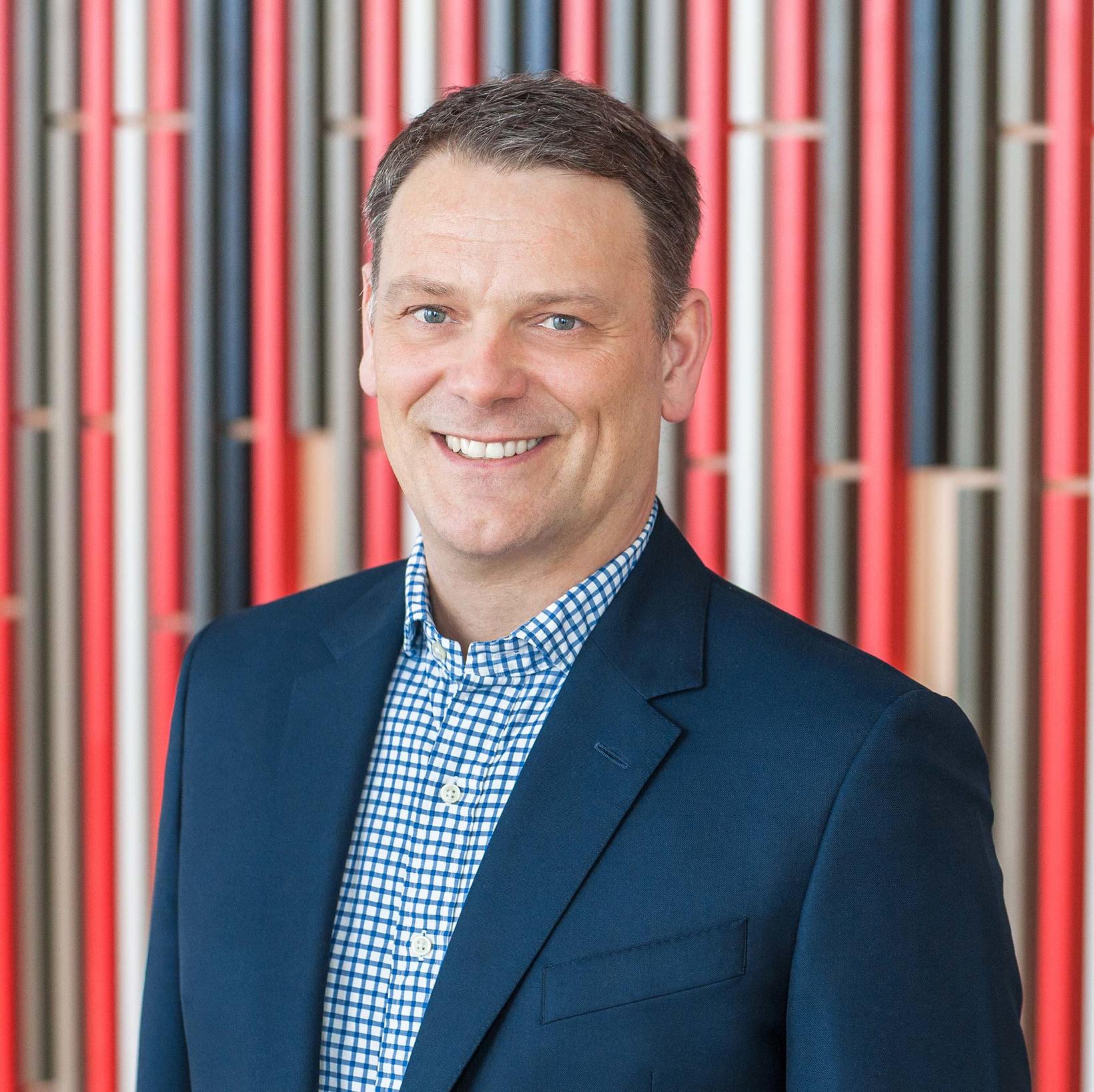Listeners – at least in Germany – are fascinated by Latvian folk songs / day
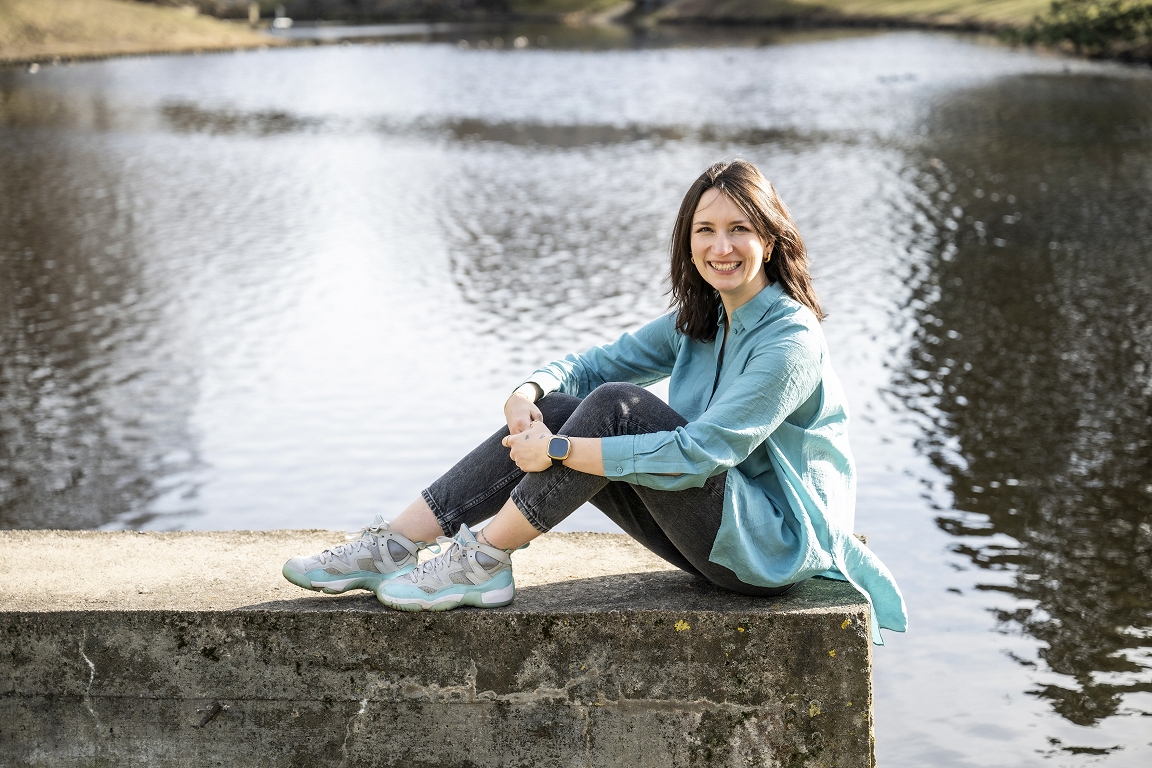
« For Latvians, folk music is really very special, and it definitely gives us our identity, wherever we are in the world, » says composer and singer Monta Tupchijenko. In creating and, together with the world -famous NDR Big Band in Hamburg, entering the Latvian folk song by jazz arrangements, she was convinced that « listeners – at least in Germany – fascinate Latvian folk songs ».
This Friday in Riga Festival decibel In the closing concert Ethno+Jazz, Vol. 7 A specially designed premiere of the new work, performed by an international student big band, is expected.
Monta Tupchijenko combines jazz, modern classical and traditional folk music in her works. She writes harmoniously saturated polyphonic music and works with choirs, a capella For groups, jazz orchestras, big bands and large inter -genre ensembles. Critics admit that Monta Tupchijenko « expands today’s jazz, leaving them a lot of traditional music to still feel comfortable. » At the end of 2024, Monta Tupchijenko received the Gerhard Turde Award in the competition for young composers in Germany. This prize is awarded to the new composers resident in the European Union (under the age of 35), who arrange Gerhard Treve’s works in a modern sound. The Latvian composer arranged by composition Summer Flowers play HFMT HAMBURG LARGE Ensemble Agustina Pardo, conductor and winner of the previous competition. And at the end of January this year, Monta Tupchijenko with the famous NDR (Norddeutscher Rundfunk) Big Band NDR recorded six of their original works in Hamburg, including two Latvian folk songs Dressed, sun, silver and Freezer Arranged jazz style as well as original compositions Treetop and Captain With Alexander Line’s poetry. Not only does the composer compose and arrange, but they also sing and conduct.
Last year Monta Tupchijenko with new work Stepping Outside and It’s the about TIME represented Latvia as one of the four composers in the project European Composers Vol. 2what was implemented Subway Jazz Orchestra, And as one of the four composers for women in the Berlin Youth Jazz Orchestra project, and already this month on April 23 at the festival Feminale The composer’s concert program for Big Band and Voice, as well as the female vocal quartet will be performed in Hamburg.
Where do you come from and how do you get where you are?
I was born in Valmiera and Valmiera Music School I learned piano. I have been singing a lot since childhood, so it was only a matter of time to turn to professional singing. Piano teacher Aigija Kalniņa prepared some students for jazz music nights, where we learned four -wheeled and « jazzy » solo pieces. I think that when I woke up my first interest in jazz.
A couple of years later, I also learned a bit of a drum game – my teacher was also fascinated with jazz music. But the real impetus to turn to jazz was given by the Riga Dome Choir School Girls’ Speech at the Valmiera Culture House – it was a decisive moment when I realized how much I wanted to learn the singing of jazz. Although after graduating from the gymnasium I entered the Riga Stradins University Faculty of Medicine, the dream of singing jazz did not give peace and turned out to be stronger.
Which form of expression from your creative versatility – singer, composer, conductor – is in your own view is the leading, main one?
At the moment, most of them are composed and arranged by music, but often I do it myself. I really enjoy being part of the ensemble, especially singing my compositions. For example, in my big band program we will play in April 23 in Hamburg Feminale At the festival, I’ll sing and conduct.
Who will sound from your contribution to the festival decibel During the concert Ethno+Jazz, Vol. 7 Friday in the Tallinn Quarter? Or will you participate as an artist yourself?
For the festival decibel I have written Latvian folk songs Dressed, sun, silver Instrumental arrangement. Although I recorded the first version several years ago, I decided to improve it and offer it to the festival as well. This folk song is particularly sweet to me and has been deeply memorized from the times I participated in the Song Festival Choir.
So far, I have not planned to participate in the work, but I would love to do so if I had the opportunity.
Your path has led to Latvia to Estonia, Norway, the Netherlands and Germany. Why anchor in Hamburg?
Not only is Hamburg a beautiful city, it also offers high -level study programs. In my opinion, studying the most important is the lecturer to learn the main subject, in my case, a jazz composition. I still admire and learn a lot from my teacher Wolf Keršek. He often intuitively perceives my compositions, ideas, structure, instrumentation, based on his extensive experience, and is able to divert the work process into a productive bed.
At the moment, I feel best in Hamburg, Germany, but I can’t say with certainty that it will be my last stop. Although the people of Hamburg are distant, they are still cheerful and kind. But this alone is not enough to consider staying in a city – it is important for me to see the opportunities for growth.
I would like to spend more time in Latvia – not only visiting my family and friends, but also actively participating in musical projects.
How did you come to collaboration with NDR Big Band?
The ability to work and record music with NDR Big Band is one of the most important projects in the Jazz Master’s study program. Every year, only one student is admitted to the program, and not everyone chooses this opportunity to work with the big band. An entry with NDR Big Band is a great privilege that I really appreciate.
The preparation was relatively lasting, and in order to get a quality result, it was necessary to carefully design each detail, adjusting the pieces for each musician’s specific instrument and improvisation for the game. Especially the requirements of this big band had to be sent in very timely notes.
The entire radio studio team is very organized – each accurately performs their task from the planning and organization to the preparation of notes and enters the studio with several sound directors. The record is led by a producer who also carefully follows the score – dynamics, rhythm, intonation.
I admire the professionalism, punctuality of NDR big band musicians, but I also appreciate their kindness, sincerity and responsiveness. This was a fantastic experience, and I hope this cooperation will continue in the future.
When studying abroad, did you also encounter existential « widow’s son » difficulties? What did this temper give?
My experience has been very different. There have been stages of life when there was no place to live and had to sleep on a friend in the sofa for several months. There have been periods when it was not possible to find a job, there was not enough money for rent and had to carefully plan the meals for the whole week so that no product was wasted. I’ve experienced a lot of hopeless and lonely moments, and the feeling that I will not really fit in and understand. Sometimes I wonder if the regular relocation and efforts to get into a new environment have been a waste of time, but it seems that constant change is an integral part of my life path. Since living abroad, I have also met fantastic people and have met a variety of cultures, so my views on life have changed – I have certainly become more tolerant, understanding and less conservative.
Where do you see the most important differences when comparing the life and creative environment in Latvia and Germany?
I am still sometimes surprised by the German behavior, the so -called culture shock, but from all the countries I have lived, I feel best in Germany. I see quite a few similarities in the lifestyle and thinking of Latvians and German. I may also help that I have learned German and that is why I am more often in contact with the Germans. The Germans are often very formally and structured, and there is extensive bureaucracy. They rely on government and social guarantees, such as insurance and benefits. Most of my acquaintances are actively interested in politics.
I think art is important in both Latvia and Germany. However, in Latvia, our folk culture and traditions have much deeper roots. The artistic environment is different in each city in Germany. For example, Cologne has been popular for a long time Free JazzThere are many opportunities in Berlin, but the most popular, in my opinion, is avant -garde jazz and has a great deal of electronic music. In Hamburg, jazz is relatively traditional, but here is often the mixture of different genres that speak to me the most. Hamburg is a large, international and cultural city.
How do you perceive your music in Germany, and especially that you work creatively with Latvian folk song?
When writing music, I mostly combine elements of classical, jazz and traditional music. So far I have received many positive and encouraging reviews.
Latvian culture and folk songs are something unique, and in my experience with a little translation and explanation, people show genuine interest, appreciate and treat them with respect. Interest in folk songs outside Latvia is growing, and I am delighted to offer them in a new sound.
Tell me closer to the prize received recently in Germany. Who is given and how does it affect the future career?
In the autumn of last year, I received the composer Gerhard Turde Foundation Award for the Best Arrangeal Original Composition for a Great Intermediate Ensemble, which included string tools, rhythm group, harp, wind instruments, soloist singer and classic percussion. Recognition and appreciation is a great honor. I bought the piano for the money bonus to work at home. Two years later, I am scheduled to produce and conduct the pieces submitted for the next competition.
I notice songs with your colleague’s singer and poetry author Alexander Line. What more texts are you using?
So far, I have written at least four compositions with poetry by Alexander Line. I am very appealing to me – it is rhythmic and modern, so it is easy to use melodies. Every now and then I also write song lyrics or collaborate with other lyrics authors. Such as a composition Stepping Outsidethat was created Subway Jazz Orchestra, I wrote the text with the violinist and singer Lail Nester. Also festival Feminale The concert program will feature several new pieces with my lyrics.
How and where do you see your musician’s future? Do you already know where you go after graduation from the composition of the composition?
I planned the closing concert of the Master’s degree next year with music for a fagot and orchestra. As I mentioned, even though my music and work are closely related to Germany at the moment, I would like to be more active in Latvian music. So far, I am grateful for the possibilities of writing custom compositions for different ensembles and I very much hope that there will be more and more opportunities in the future.
My future vision is to compose music for various ensembles, choirs and orchestras, as well as to conduct my own ensemble that could be regularly performed and created new interronner ideas. I feel that this project would give me a creative fulfillment.



